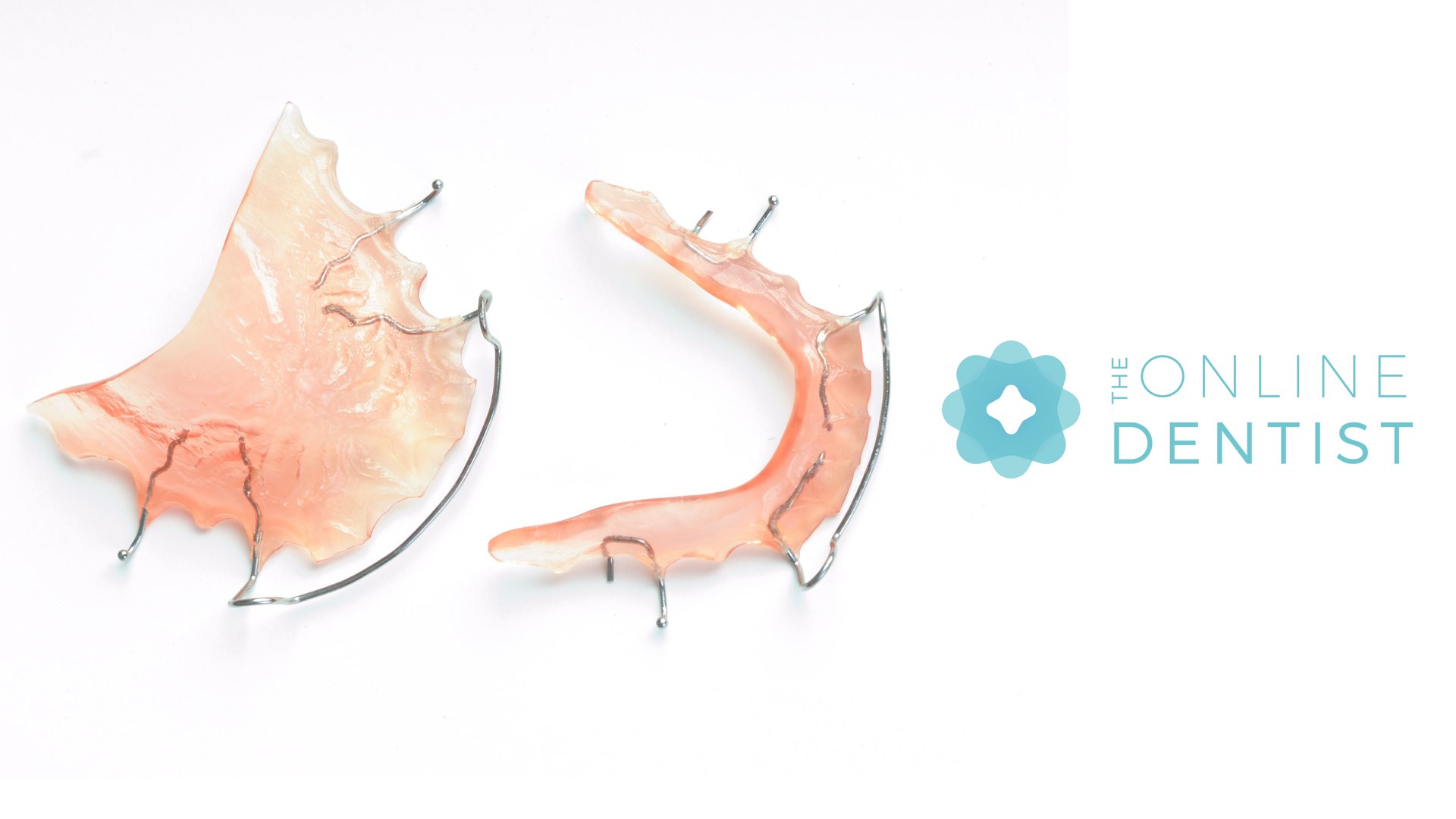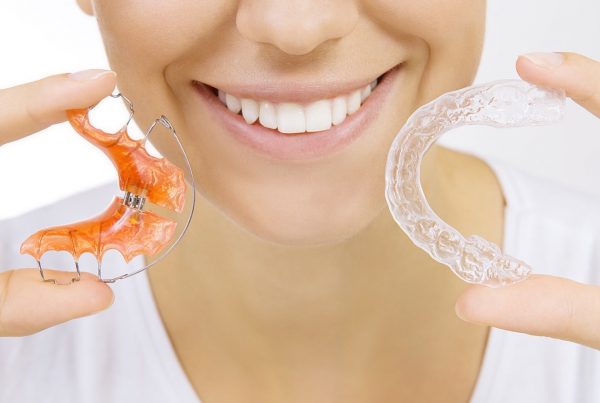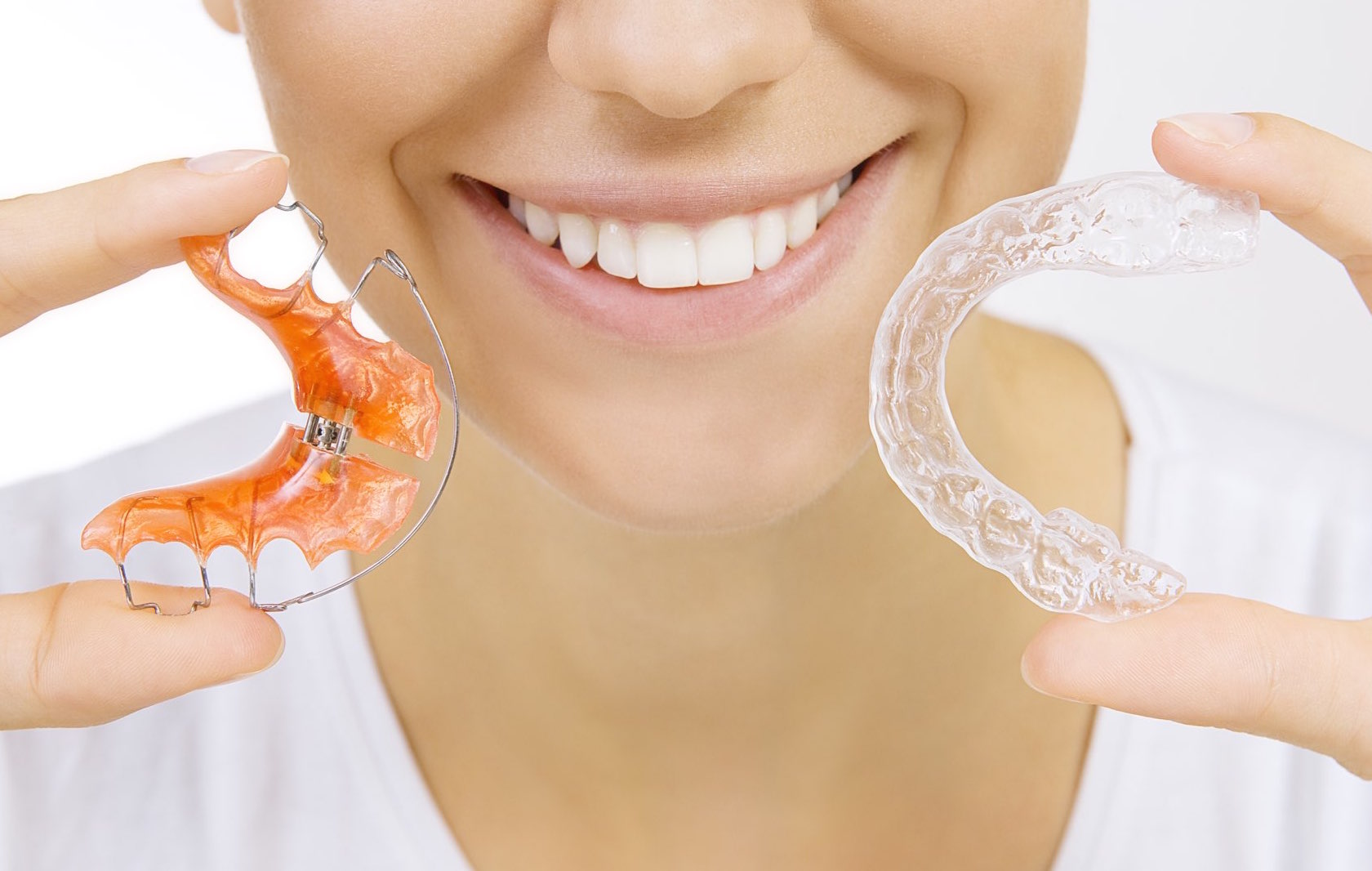Once you, or your child, have had orthodontic treatment (or braces) to straighten your teeth and help correct your bite, your orthodontist will advise you to wear retainers. Retainers are a fixed, or removable appliance which are used to help keep the teeth where they are.
Retention is one of the most important parts of orthodontic treatment, as without holding the teeth in the correct position, they often want to move back to where they started from. Wearing your retainers is therefore key if you want to keep your teeth beautifully straight.
Types of retainers
Removable
Removable retainers are ones that you take in and out of the mouth. There are different types of removable retainers including some with wires that cover the front of the teeth, and the most common is a clear plastic retainer that covers all of the teeth. Which retainer you are asked to wear depends on how your teeth were before braces treatment started.

Fixed
This is a little wire that is stuck to the back of your teeth and helps to keep the front teeth straight. It is not suitable for everyone, and depends on how your teeth were at the start as to whether it is recommended or not. Even if you have a fixed retainer, you will generally be asked to continue to wear a removable retainer as well to help ensure your teeth stay straight. It is important that you get your dentist to check the wire retainer regularly to examine the teeth and gums around it, and to make sure it hasn’t broken. If it breaks, there is a risk of getting decay on the teeth, and your teeth may move!
How long do I have to wear retainers for?
This is a very common question, and the answer is generally… How long is a piece of string? The honest answer is your retainers should be worn on a part-time basis for as long as you want them to stay straight. Initially, your orthodontist may ask you to wear them all the time, or every night (depending on your bite) and then often will ask you to reduce the amount you wear them. If ever your retainer starts to feel a bit tight, that is a sign that you should wear them more as your teeth are trying to move.
If you decide not to wear your retainers, or lose or break them without getting them replaced, it is likely that your teeth will move. To get them back to straight, you would probably need further brace work… So it is worth wearing your retainers!
How to clean your retainers
Removable
You should clean your retainer at least daily. You can use a toothbrush and (non-abrasive) toothpaste, or washing up liquid and another toothbrush. There are retainer cleaners available to buy which should be used in addition to brushing, which help keep them disinfected and clean.
Fixed
The most important thing is to keep the teeth and gums clean around the wire retainer. See your dentist regularly to check the retainer is not broken, and to check the health of the teeth and gums around it. Regularly brushing around the retainer (at least twice daily), as well as using specialised floss that can be used to clean underneath the retainer is important.
What to do if your retainer breaks
If your retainer breaks, you should go and see your dentist or orthodontist as soon as possible. The longer you have without a retainer, the more likely it is that your teeth will move.
Keep updated with the Online Dentist newslettersign up today
Recent Articles
 Your child’s dental development (from 0 to 18 years old) As a general rule, we should all have 2 sets of teeth; 20 baby teeth (also called milk teeth) and...
Your child’s dental development (from 0 to 18 years old) As a general rule, we should all have 2 sets of teeth; 20 baby teeth (also called milk teeth) and...
 Once you, or your child, have had orthodontic treatment (or braces) to straighten your teeth and help correct your bite, your orthodontist will advise you to wear retainers. Retainers are...
Once you, or your child, have had orthodontic treatment (or braces) to straighten your teeth and help correct your bite, your orthodontist will advise you to wear retainers. Retainers are...




